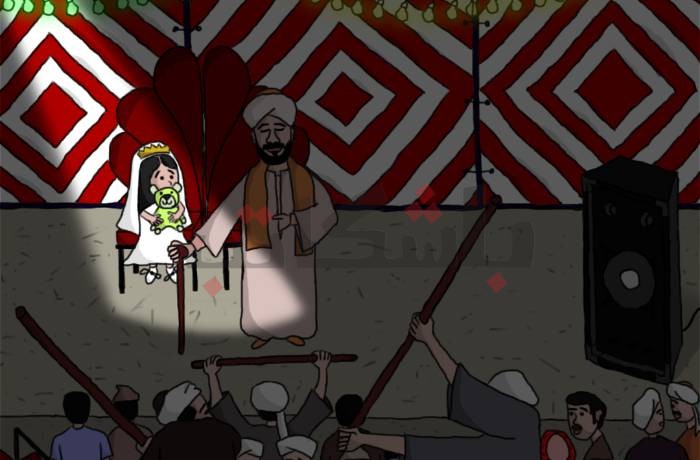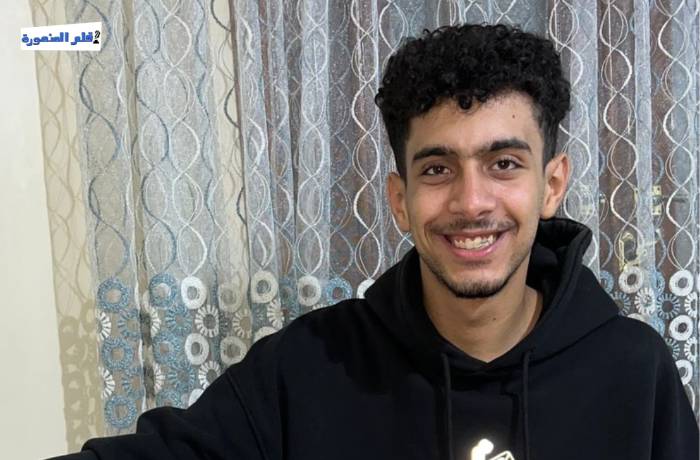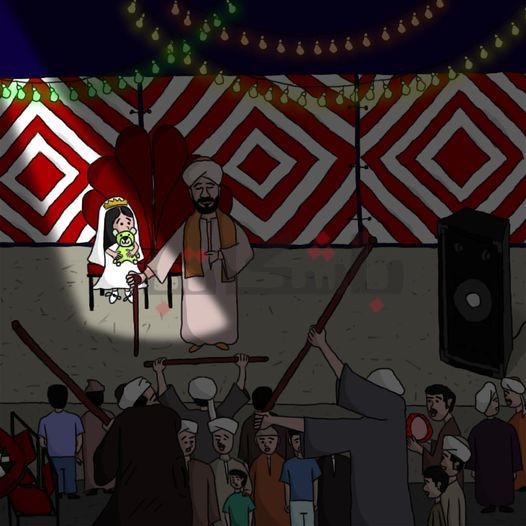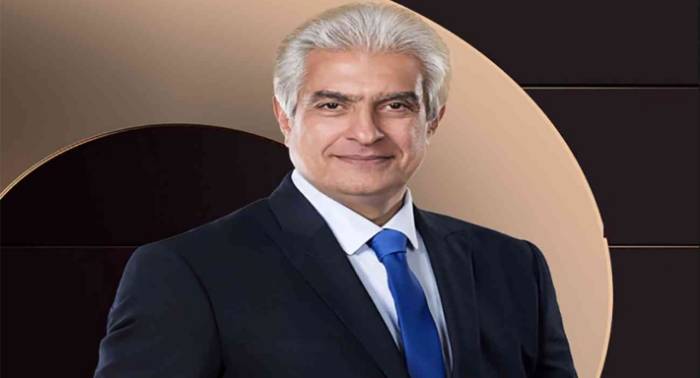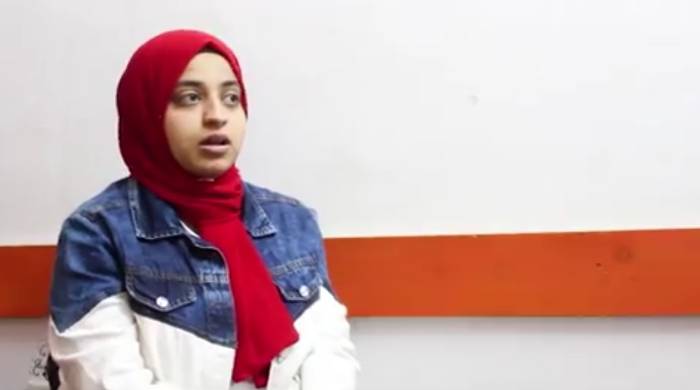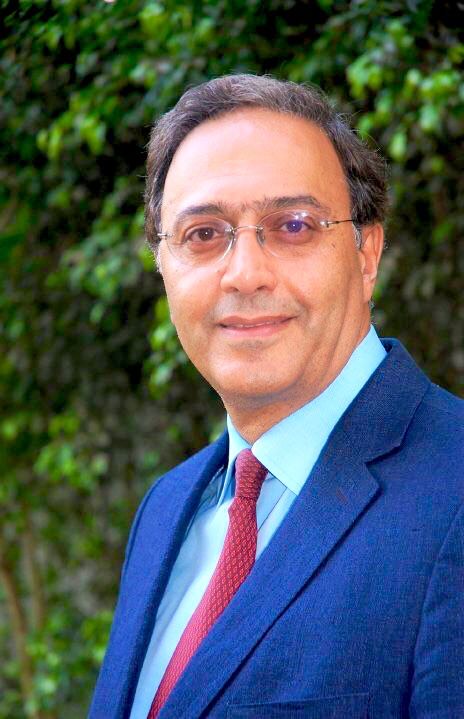My village do not acknowledge terms such as Early Marriage or Minors Marriage, “or whatever the official or nonofficial institutions call describing under-18-years-old-marriages, or what Human Rights laws and charters call children”.
Here, once the girl reaches puberty, she is put under the spot as people start wondering when she will marry. The norm here is to marry at an early age, not the opposite, and amidst this tremendous pressure it is natural for the girl to give in to her family’s demands and marry.
For Amira -pseudonym- her decision to continue her education and its consequences is considered an example to all what the girls suffer from traditions and customs which mixing between duties and rights and authority and vulnerability, especially after marriage.
At first, girls didn’t have the right to accept or refuse to marry, let alone choose their husband, their family would take the decision and force them to accept when they’re only 16 years old. If the girl would want to continue her education, then she had to bear all the responsibilities thrown at her, not only in her own household but her husband’s family’s as well; the husband’s mother wouldn’t want her daughter-in-law to continue her education, so she adds more chores to the girl’s duties and if she fails at meeting them the mother would pressure her son to force his wife to quit school.
Amira couldn’t talk her husband into reducing house chores assigned to her, as once he accepted her going to school he opened a door for his family to criticise him seeing his decision as giving up his right for his wife to focus entirely on her chores, “marriage here transfers girls from serving their family to serving their husbands and their families, for it is known here that wives are obligated to offer such services, and customs won’t differentiate between her responsibility to her house and the family’s”, said Amira.
Then Amira added, “I suffered, as if I was paying for my decision, so I faced the challenge of continuing my education on the condition that I fulfil my duties; I woke up early to finish my chores, and sometimes I would travel to the city in the morning to attend private lessons, then go home to finish my chores and take care of my mother-in-law and the chickens she raises”.
Amira’s family didn’t support her decision to continue her education, “my mother, grandmother, and all my relatives married at the same age and all quit school after, so of course they objected to my decision, just like my husband’s family, and all thought I wasn’t right in the mind by thinking like that”.
Amira had her first daughter when she was in third secondary grade, “I barely slept, I used to serve everybody here besides my baby, and at night, I would stay awake to study, I felt that if I stopped taking care of my chores, they would find it a reason to pressure my husband to make me quit school”, said Amira.
The deal was that Amira would quit education after obtaining her high-school diploma, but her high grades encouraged her to talk to her husband to allow her join one of the Islamic Sharia colleges, “to be honest, although my husband didn’t finish his education, he supported me to finish mine, he considered education an important thing”.
The mother-in-law wasn’t the only one who took it for granted to meddle in her son’s life and object to his decision, his brothers too interfered as if it was their right to do so, “she used to threaten him, telling him that I’m going to be better than him and his brothers so he would go back in his decision, but he didn’t”.
Amira continued bearing her heavy chores even in college, she sometimes had to take her child to class, and sometimes asked her mother or sister to take care of the baby especially after having her second when she was in fourth year.
It was obvious while talking to Amira to notice her passion about education, saying that it was her incentive to bear all that pressure and suffering that others might fall under and consequently are forced to quit. Amira had almost lost her marriage when she declared her desire to pursue a graduate degree, her husband objected to it at first then changed his mind, “he realised my passion with education and my ambitions to learn and teach those around me”.
“Girls here are continuously put under pressure, for I suffered to obtain one of my rights to continue my education, but on the other hand, if I didn’t get married, I would have been put under the pressure by those around me seeing my peers becoming mothers, and I would’ve felt lonely”, added Amira.
UNICEF declares that child marriage rates around the world reached one in four girls a decade ago, and despite its decrease to one in five girls, it is still a “widespread” practice, and the United Nations children’s agency defines child marriage as any formal marriage or informal union between a child under the age of 18 and another adult or child.
UNICEF indicates that child marriage is most probably due to gender inequality, affecting girls due to such practices, and that globally the prevalence of child marriage among boys is only one-sixth that of girls.
In Egypt, according to the Central Agency for Public Mobilisation and Statistics in the latest demographic health survey, 117 thousand children in the age group from 10 to 17 are married or have ever been married, and the percentage increases in rural areas to reach 37% among women compared to 17% of those who live in urban areas. Marriage pushes girls in particular to quit education due to the burdens of family responsibilities and childbirth.
Amira looks at her child and says that she won’t let her go through the same hardships and that her story would put an end to this series of early marriages, at least amongst her small family, then Amira adds passionately that she would seek to obtain her PhD and work in the academic field, if possible, “there are voices now in the village calling against early marriage or forcing girls to quit education, and I think I am going to use this to help my girl never be forced to do things against her will”.
